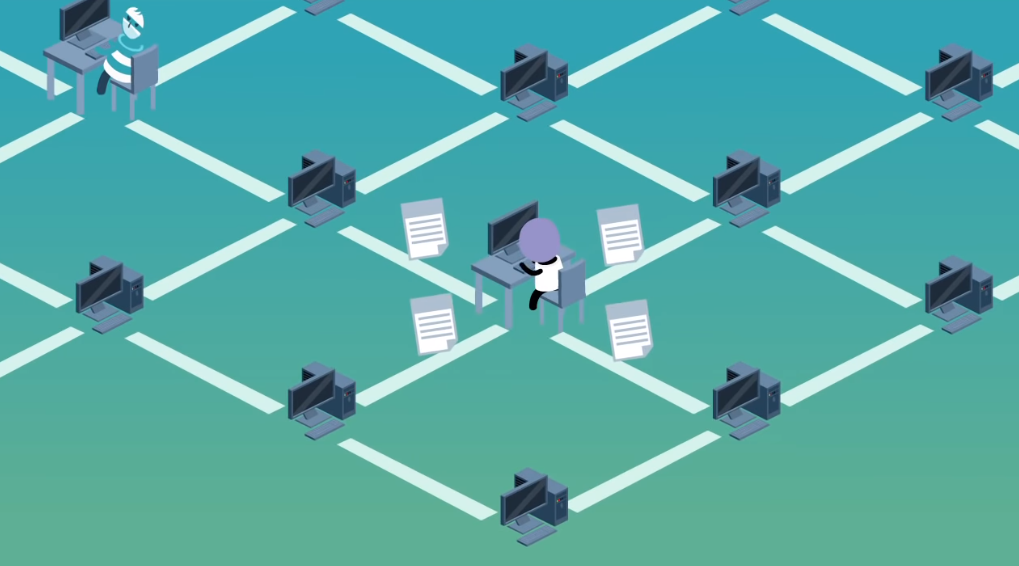Introduction
The Importance Of Data Privacy And The Growing Demand For Data Privacy Lawyers
With the rise of technology and social media, our personal data has become increasingly vulnerable to cyber attacks and breaches. This has led to a growing demand for professionals who specialize in data privacy law. Data privacy lawyers play a crucial role in protecting individuals’ sensitive information from being misused or exploited.
The importance of data privacy has only been amplified by recent high-profile data breaches at major companies such as Equifax and Yahoo. These incidents have resulted in significant financial losses for individuals and businesses alike, as well as irreparable damage to their reputations. As a result, there is an urgent need for skilled attorneys who can help prevent these types of incidents from occurring.
Moreover, the increasing dependence on technology in every aspect of our lives means that protecting our personal information will continue to be a pressing issue. As we move towards more advanced technologies such as artificial intelligence and the Internet of Things (IoT), there will be even greater demand for legal experts who understand how to navigate complex regulations related to data privacy. Therefore, becoming a data privacy lawyer can be a lucrative and rewarding career path with ample opportunities for growth and development.
Becoming a Data Privacy Lawyer
Step 1: Understanding the Role of a Data Privacy Lawyer
Definition Of Data Privacy Law And Its Scope
Data privacy laws are legal frameworks that govern how personal information is collected, used, processed, stored and shared by organizations. These laws seek to protect individuals’ confidentiality and control over their data while also balancing the needs of society for access to information. The scope of data privacy law covers a broad range of topics including but not limited to personal data protection, security measures, breach notification requirements, cross-border transfer restrictions and individual rights.
Overview Of The Responsibilities And Duties Of A Data Privacy Lawyer
A data privacy lawyer is responsible for ensuring that a company or organization’s collection, storage, and use of personal data comply with relevant laws and regulations. They must stay up-to-date with changing laws related to data protection and inform their clients about new requirements.
One of the key duties of a data privacy lawyer is to assist clients in developing policies and procedures for handling personal information. This can include drafting privacy notices, consent forms, and other documents that are necessary for compliance.
In addition, data privacy lawyers may need to represent their clients in legal disputes related to violations of data protection laws. This can involve negotiating settlements or representing clients in court hearings.
Explanation Of The Skills And Qualities Needed To Become A Successful Data Privacy Lawyer
A successful data privacy lawyer should possess a strong foundation in legal principles and possess the technical knowledge necessary to navigate complex data protection regulations. They must maintain a comprehensive understanding of evolving data privacy laws, both domestically and globally, and the implications of these laws on businesses. A successful data privacy lawyer should also be able to provide practical solutions that balance regulatory compliance with business objectives.
In addition to legal expertise, communication skills are essential for any aspiring data privacy lawyer. Successful communication allows them to effectively communicate with clients about complex legal concepts, as well as explain their obligations under applicable regulations. Furthermore, communication skills are crucial when working with other members of a client’s team or across different departments.
Successful data privacy lawyers must also be detail-oriented and have strong analytical skills. As such, they must be able to scrutinize an organization’s operations to identify potential risks of non-compliance with various regulations. By analyzing the processes and procedures surrounding an organization’s handling of personal information, they can develop strategies for ensuring compliance while maintaining their client’s competitive edge in their industry.
Step 2: Education And Training
Requirements For Becoming A Data Privacy Lawyer
To become a data privacy lawyer, an individual must first obtain a bachelor’s degree in any field of study before proceeding to law school. After earning their Juris Doctor (JD) degree, aspiring data privacy lawyers should enroll in courses that focus on technology and cybersecurity law.
To practice as a data privacy lawyer, one must pass the bar exam and get licensed in their state of residence. It is also ideal for individuals to gain experience by working with organizations that deal with sensitive information such as healthcare providers or financial institutions. Specialized certifications like Certified Information Privacy Professional (CIPP) can also help lawyers stand out.
In addition to technical skills, data privacy lawyers should have excellent communication abilities since they often act as liaisons between businesses and regulatory agencies. They should be able to explain complex legal concepts accurately and concisely to clients who may not have legal backgrounds or technical knowledge related to data protection laws.
Choosing The Right Undergraduate Degree
A degree in law, computer science or information security can give you an upper hand in pursuing this career path. A law degree provides you with a strong foundation in legal principles and concepts that are critical to the field of data privacy. It equips you with analytical reasoning skills and the ability to think critically when approaching complex legal issues.
On the other hand, computer science and information security degrees provide an understanding of how technology works, which is essential when dealing with data breaches and cyber-attacks. These degrees also teach ethical hacking techniques that can help identify vulnerabilities in systems and prevent potential attacks. Having knowledge of coding languages like Python, Java or C++ gives aspiring data privacy lawyers an additional advantage as it makes them more versatile.
Choosing The Right Law School And Program
Before making any decisions, consider several factors such as location, reputation, faculty, course offerings, and career services. One should also research the specific programs offered by each law school and evaluate if they align with their interests in data privacy.
Additionally, attending a law school with a strong alumni network can be beneficial when looking for job opportunities after graduation. It’s essential to attend an accredited law school as well since this ensures that one has met the minimum requirements necessary to practice law in their state or country.
Other Certifications And Qualifications

In addition to obtaining a law degree and specializing in data privacy law, there are other certifications and qualifications that can enhance a lawyer’s credentials. One such certification is the Certified Information Privacy Professional (CIPP) credential offered by the International Association of Privacy Professionals (IAPP). This certification provides specialized knowledge of global data protection laws, regulations, and practices.
Another qualification that can enhance a data privacy lawyer’s credentials is obtaining a Master of Laws (LLM) degree in information technology or cybersecurity. This advanced degree provides specialized knowledge on emerging technologies and their legal implications for data privacy.
Additionally, lawyers can pursue certifications in specific areas such as healthcare information privacy or financial services industry compliance. These certifications demonstrate expertise in niche areas related to data privacy law and can make a lawyer stand out among others with more general credentials.
Step 3: Gaining Relevant Experience
Internships And Externships In Data Privacy Law
Internships typically last a few months during the summer or semester, while externships can be done for academic credit during the school year. Both offer similar benefits, such as networking with industry professionals, gaining insight into specific areas of data privacy law, and developing critical thinking and research skills.
Students can find internships and externships through career services at their law schools or by reaching out to firms or organizations directly. Some popular options include government agencies like the Federal Trade Commission or private firms specializing in data protection law.
Summer Associate Positions At Law Firms
Summer associate positions at law firms are highly coveted by law students seeking to gain valuable experience in the legal field. These positions typically offered to rise 2Ls or 3Ls, provide an opportunity for students to work alongside experienced attorneys and learn more about various practice areas within the firm. Students who secure summer associate positions may also have the chance to attend networking events and participate in training sessions.
Entry-Level Positions In Data Privacy Law
Entry-level positions such as legal assistants, paralegals or compliance analysts can provide an excellent foundation for those interested in pursuing a career in data privacy law. Legal assistants typically perform various administrative tasks, including drafting legal correspondence, organizing files and documents, managing calendars, and scheduling appointments. Paralegals may work more closely with lawyers and assist with research, drafting pleadings or motions, summarizing depositions or trial transcripts, and performing other tasks as assigned.
Volunteering And Pro Bono Work In Data Privacy Law
Many non-profit organizations, such as the Electronic Frontier Foundation (EFF) and the World Privacy Forum, rely on volunteers to help with their research and advocacy efforts. By volunteering your time and skills, you can make a meaningful impact on important issues related to data privacy.
Pro bono work is another option for those looking to gain experience in data privacy law. Many law firms have pro bono programs that allow lawyers to provide free legal services to individuals or organizations who cannot afford them. This can include providing guidance on compliance with data protection laws or representing clients in privacy-related lawsuits.
Step 4: Building a Professional Network
Importance Of Building A Professional Network In Data Privacy Law

Building relationships with other lawyers, consultants, policymakers, and industry leaders allows data privacy lawyers to stay up-to-date on the latest trends and best practices.
A strong professional network also offers access to resources such as job opportunities, mentorship programs, and continuing education courses that can help sharpen skills and advance careers. Networking events like conferences or webinars provide platforms for individuals to connect with others in the field, share information about their experience as well as hone their communication skills.
Tips For Networking In The Industry
To network in this field, attend conferences and events focused on data privacy. These gatherings bring together professionals from all areas of the industry, providing an opportunity to engage with peers and build your reputation as a thought leader.
Leverage social media platforms like LinkedIn or Twitter. By following influential people in the field and engaging with their content, you can gain visibility among other professionals while also learning about new trends or best practices.
Attending Conferences And Events
These gatherings provide an opportunity to meet professionals in the field and learn about the latest developments in data privacy law. Attending events such as the International Association of Privacy Professionals (IAPP) Global Privacy Summit or the Data Protection World Forum can help lawyers gain knowledge and insights into global regulations, industry trends, and best practices.
Joining Professional Organizations
Professional organizations provide opportunities to network with colleagues in the field and stay up-to-date with industry trends and best practices. By joining these organizations, you can also gain access to valuable resources such as legal updates, training programs, and certifications that can enhance your skills and knowledge.
Step 5: Obtaining Professional Certifications
Overview Of Relevant Certifications In Data Privacy Law

Many professionals are seeking out relevant certifications to demonstrate their expertise in this area. Certified Information Privacy Professional (CIPP) offered by the International Association of Privacy Professionals (IAPP) covers the fundamentals of data protection law and practice across various jurisdictions, making it an excellent choice for those looking to work internationally.
Another valuable certification is the Certified Data Protection Officer (CDPO), which is offered by the European Institute of Innovation and Technology (EIT). This program provides a comprehensive understanding of data protection laws within Europe, as well as practical guidance on implementing best practices in data protection. Additionally, there are country-specific certifications available in some regions such as India’s DSCI Certified Privacy Professional or Canada’s CIPP/C Certification.
How To Prepare For Certification Exams?
- Know the Exam Structure: Before preparing for a certification exam, it is essential to know the structure of the exam. It will help you understand which topics are more important and require more preparation. The examination authority’s website can be an excellent source for understanding the marking scheme, number of questions, and time duration.
- Create a Study Plan: Once you have understood the exam structure, create a study plan that works for you based on your strengths and weaknesses. Divide your study time equally between all topics, devoting more time to those you find challenging.
- Practice with Mock Tests: Practice makes perfect! Take as many mock tests as possible before taking the actual certification exam. These tests will help you identify your weak areas and improve them through further studies.
- Join Study Groups: Joining study groups can be beneficial in helping prepare for exams as it provides an opportunity to learn from others’ experiences and gain knowledge from different perspectives.
- Revision is Key: Don’t forget to revise all that you have learned before sitting for an exam! Set aside some time every day or week just for revision purposes so that everything stays fresh in your mind come test day!
Step 6: Finding A Job As A Data Privacy Lawyer
- Utilize your network: Networking is a crucial aspect of any job search, but it is even more important when looking for jobs in data privacy law. Reach out to your contacts in the legal industry and attend events hosted by professional organizations to meet other professionals in the field. This will help you stay updated on trends and opportunities.
- Tailor your resume and cover letter: Data privacy law requires a unique set of skills and experience, so ensure that your resume and cover letter reflect this. Highlight relevant coursework, internships or previous work experience that demonstrate knowledge of data protection laws or data security practices.
- Keep up-to-date with the latest developments: The field of data privacy law is constantly evolving as new regulations are introduced, so stay informed about recent changes or upcoming legislation that may affect potential employers. Read industry publications and attend conferences to keep abreast of current issues.
- Leverage technology: There are numerous online resources available for job seekers including job boards like Indeed, Glassdoor or LinkedIn Jobs which cater specifically to legal jobs. Additionally, use social media platforms like Twitter and LinkedIn to follow thought leaders in the industry who can offer valuable insights into potential job openings or opportunities.
- Be prepared for interviews: Before attending an interview for a data privacy law position ensure you have done research on the company’s policies around data protection laws because this information will likely be discussed during the interview process.
Overview Of Job Opportunities In The Field
A data protection officer (DPO): A DPO is responsible for ensuring that companies comply with data protection regulations such as GDPR, CCPA, and HIPAA. They are also responsible for developing and implementing policies and procedures to protect personal data.
A privacy consultant or advisor: Privacy consultants help organizations understand their obligations under relevant data protection laws and offer advice on how to mitigate risks associated with personal information. They also provide training on how to handle sensitive information and respond appropriately to potential breaches.
Job opportunities within regulatory bodies such as the Federal Trade Commission (FTC) or Information Commissioner’s Office (ICO). These agencies enforce data protection laws by investigating complaints, conducting audits, and imposing penalties on non-compliant companies.
FAQs
What Skills Do I Need To Become A Data Privacy Lawyer?

To become a data privacy lawyer, you need to have excellent analytical skills, attention to detail, and the ability to interpret complex legal statutes. You must be well-versed in privacy laws and regulations both domestically and internationally. Moreover, strong communication skills are necessary as you will need to communicate with clients about their data privacy concerns.
How Long Does It Take To Become A Data Privacy Lawyer?
Becoming a lawyer requires at least seven years of post-secondary education: four years for a bachelor’s degree and three years in law school. After graduating from law school, individuals must pass the bar exam in their state to become licensed to practice law.
To specialize in data privacy law, additional education and training may be necessary. It can take anywhere from several months to a few years for an individual to gain expertise in this field. This may involve taking courses or pursuing certifications in data security, cybersecurity regulations, and digital forensics.
What Certifications Are Relevant For Data Privacy Lawyers?
One of the most popular certifications is the Certified Information Privacy Professional (CIPP) certification, which is offered by the International Association of Privacy Professionals (IAPP). This certification program covers a wide range of privacy-related topics, including data governance, compliance and risk management, and international privacy laws.
Another relevant certification is the Certified Information Systems Security Professional (CISSP), which is offered by the International Information System Security Certification Consortium. This certification provides lawyers with a comprehensive understanding of information security principles and best practices, as well as practical experience in designing, implementing and managing information security programs.
Many data privacy lawyers also obtain additional certifications through industry-specific organizations or trade groups. For example, those who specialize in healthcare privacy may pursue certifications from organizations such as HealthCare Information Management Systems Society (HIMSS) or American Health Information Management Association (AHIMA). Similarly, those who work in financial services may seek out certifications from groups like the Financial Industry Regulatory Authority (FINRA) or American Bankers Association.
What Is The Average Salary For A Data Privacy Lawyer?
The average salary for a data privacy lawyer is $129k per year in the United States.
Conclusion
Becoming a data privacy lawyer is a highly rewarding and challenging career path. It requires extensive knowledge of the legal and regulatory frameworks governing data protection, as well as strong analytical and advocacy skills. As technology continues to evolve at a rapid pace, the demand for skilled data privacy lawyers will only continue to grow.
To succeed in this field, aspiring data privacy lawyers should focus on building a strong foundation in relevant legal areas such as contract law, intellectual property law, and cybercrime law. They should also seek out opportunities to gain practical experience through internships or clerkships with law firms that specialize in data privacy.
